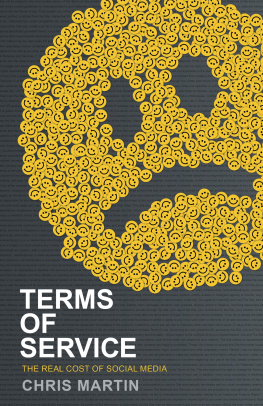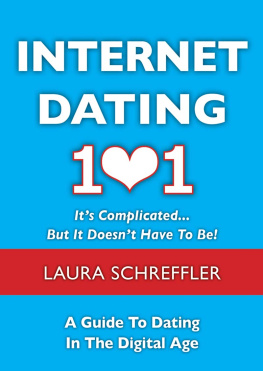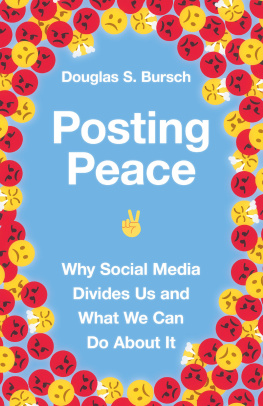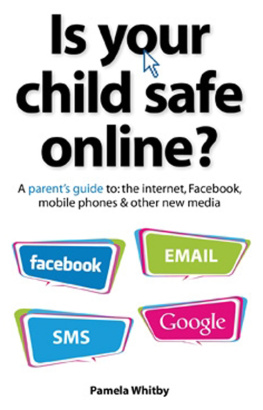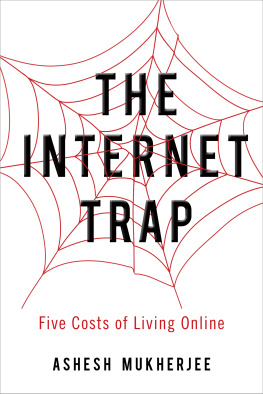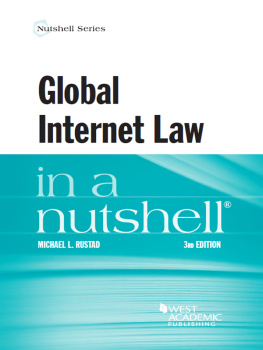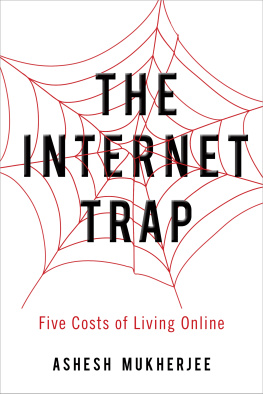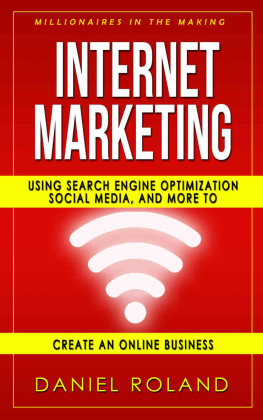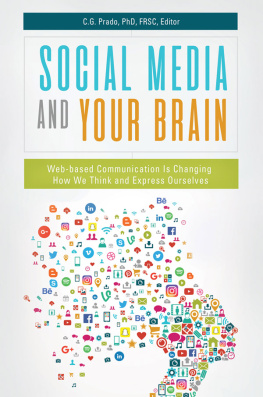Online around the World
A Geographic Encyclopedia of the Internet, Social Media, and Mobile Apps
LAURA M. STECKMAN AND MARILYN J. ANDREWS, EDITORS

Copyright 2017 by ABC-CLIO, LLC
All rights reserved. No part of this publication may be reproduced, stored in a retrieval system, or transmitted, in any form or by any means, electronic, mechanical, photocopying, recording, or otherwise, except for the inclusion of brief quotations in a review, without prior permission in writing from the publisher.
Library of Congress Cataloging-in-Publication Data
Names: Steckman, Laura M., editor. | Andrews, Marilyn J., editor.
Title: Online around the world : a geographic encyclopedia of the Internet, social media, and mobile apps / Laura M. Steckman and Marilyn J. Andrews, editors.
Description: Santa Barbara, California : ABC-CLIO, [2017] | Includes bibliographical references and index.
Identifiers: LCCN 2016048706 | ISBN 9781610697750 (hbk : alk. paper) | ISBN 9781610697767 (ebook)
Subjects: LCSH: Online social networksEncyclopedias. | Social mediaEncyclopedias. | Mobile appsEncyclopedias.
Classification: LCC HM742 .O552 2017 | DDC 302.30285dc23
LC record available at https://lccn.loc.gov/2016048706
ISBN: 978-1-61069-775-0
EISBN: 978-1-61069-776-7
21 20 19 18 17 1 2 3 4 5
This book is also available as an eBook.
ABC-CLIO
An Imprint of ABC-CLIO, LLC
ABC-CLIO, LLC
130 Cremona Drive, P.O. Box 1911
Santa Barbara, CA 93116-1911
www.abc-clio.com
This book is printed on acid-free paper 
Manufactured in the United States of America
Contents
Preface
Online around the World aims to give readers a glimpse of how people use the internet, social media, and social apps differently around the globe. There is a tendency to think that because they are popular forms of communication, everyone uses them the same way and for the same purpose. The reality, however, is far more complex. For example, there is no singular version of Facebook or Instagram, the two most popular social media platforms worldwide at the time of this writing. How they are used in the United States variesat times greatlyfrom how people use them in Nigeria, Colombia, or other areas. In some parts of the world, they arent used at all, either by choice or through government restrictions.
This encyclopedia focuses on explaining some of the major differences between the online experience in multiple countries, often in countries occupying the same geographic regions. It includes information on the history of the internet, gives social media and app profiles of countries that include user demographics when available, and examines some of the freedoms, restrictions, and activism that the web has enabled. In some countries, the internet is not always used for progress or positive social change; when this is the case, the corresponding entries include information on the darker side of the internet and social media. The entries can be read either individually or used to compare and contrast across hemispheres, continents, regions, and next-door neighbors.
Compiling a book on the internet and social media has its challenges. Because the environment is robust, expanding, and moving at an increasingly rapid pace, it can be difficult to capture the essence of what it looks like at any given moment for an entire country. In some cases, how it functions in the national capital and urban centers is vastly different from rural or more remote areas. In composing this volume, the most reliable, up-to-date sources were available online rather than being based primarily in academic journals and booksa contrast to other encyclopedias. Each entry, as it was written, encompassed the general online preferences and realities of the country at that time; inevitably, as is the nature of the online world, some of that information has already become outdated as people change how they access the internet, where they go online, and with whom they choose to exchange information.
This volume is a culmination of the research and hard work of various talented researchers. The editors were already familiar with a community of researchers working on different online environments in various regions and multiple languages. Starting with that original group, the author pool expanded to include referrals from the community and, on occasion, the identification of researchers posting exceptional papers and scholarship on sites such as Academia.edu and ResearchGate. Our sincerest thanks go to all our contributors, as well as the publishing team at ABC-CLIO, without whose hard work this book would not have been possible.
Introduction
Worldwide, the internet and social media constitute phenomena that have become integral to peoples lives. They permit real-time, rapid communication, including information and content sharing with people all over the world, at the touch of a few buttons. Less than twenty years ago, while the internet was spreading across the world, it was almost unforeseeable that it would lead to the invention and mass adoption of social media, and later applications or apps, that would revolutionize how people consume and create online content. The online information environment started very smallmostly at the behest of universities and government-sponsored institutionsand has grown to the extent that today, it reaches almost every corner of the globe. The early internet grew from a few providers and several budding social media platforms into a dynamic, high-velocity, ubiquitous, and interactive environment that reaches almost every enabled device. It stands to reason that this environment will continue to improve faster and grow ever more complex as new technologies are introduced and people keep up their demand for and interest in new uses for them. At the same time, these technologies are ultimately used and produced by people from various cultures and online needs. These differences between peoples have led to innovations in emerging communications technology, as well as global entrepreneurship that develops new ideas to meet mainstream and niche cultural needs.
Internet
The term internet refers to the hardware and software infrastructure that connects multiple networks located all over the globe. It is, in a nutshell, the overarching framework that connects and enables the sharing of information among these networks. The U.S. government laid the initial groundwork for the internet in the late 1950s. In the midst of the space race between the United States and the Soviet Union that began after World War II (19391945), the United States created the Advanced Research Project Agency (ARPA) to invigorate research and development of the countrys science and technology in 1958. ARPAs portfolio contained some of the early technologies that paved the way for the internet, although it did not emerge in its current form until after 1993, when the European Organization for Nuclear Research, known colloquially as CERN , released the software required to run the World Wide Web over the internet. After 1993, the internet grew exponentially, allowing freer and faster exchanges of information.
Many people envisioned the internet as a tool to promote freedom of speech and open access to information. The freedom of speech issue usually resonates in local politics and is often attached to internet speech and communications; arguably, while the internet has supplied the means to communicate with others quickly from anywhere, it has not been entirely successful at promoting freedom of speech throughout the world. In terms of access, there are infrastructural and financial considerations that limit mass access to the internetnamely, speed and cost. Internet speed is a measure of how fast data travels from a computer, over the internet via the World Wide Web, to another wired device. The measure is often different for download speed , or how quickly information goes from the web to a device, and upload speed , the speed of transfer from a device to a computer. The unit used for this speed is megabits per second (Mbps).
Next page

